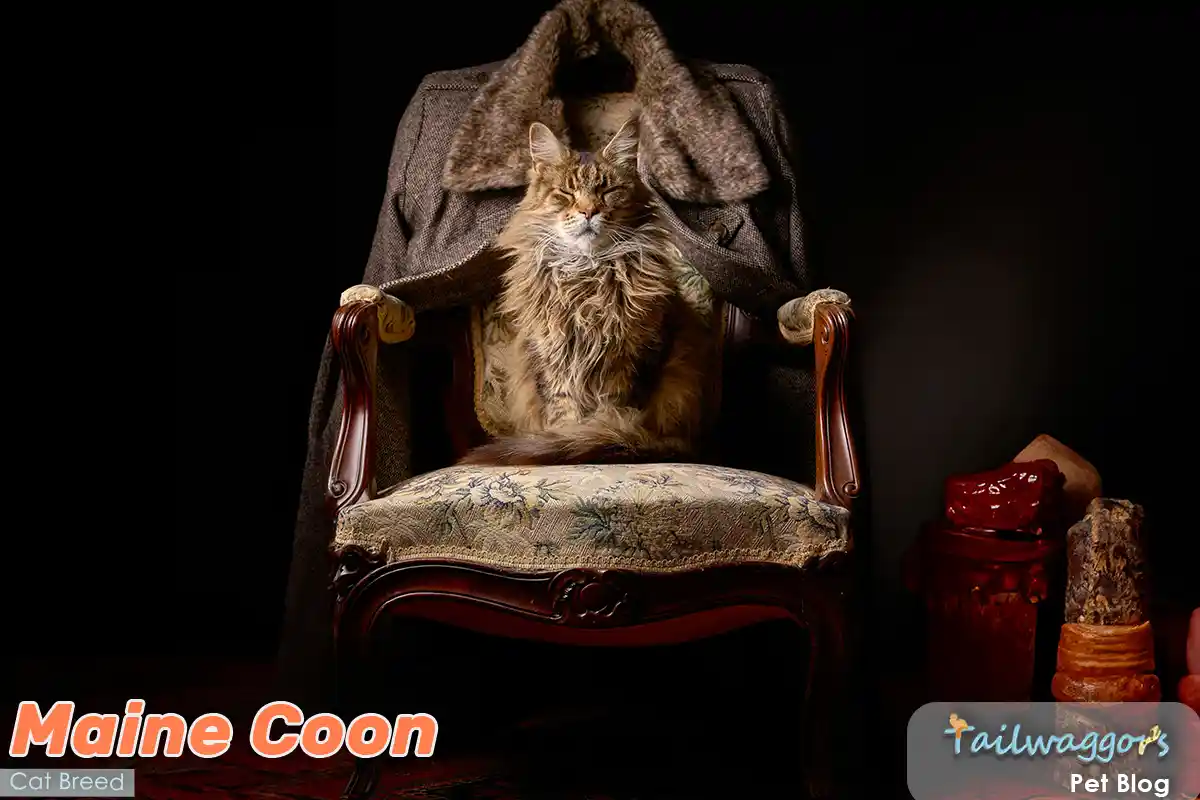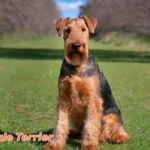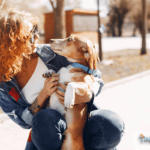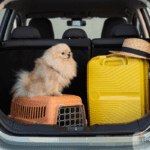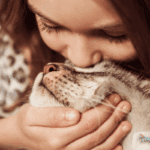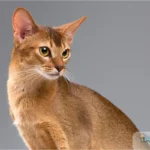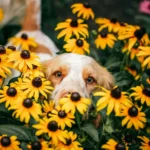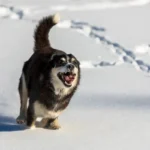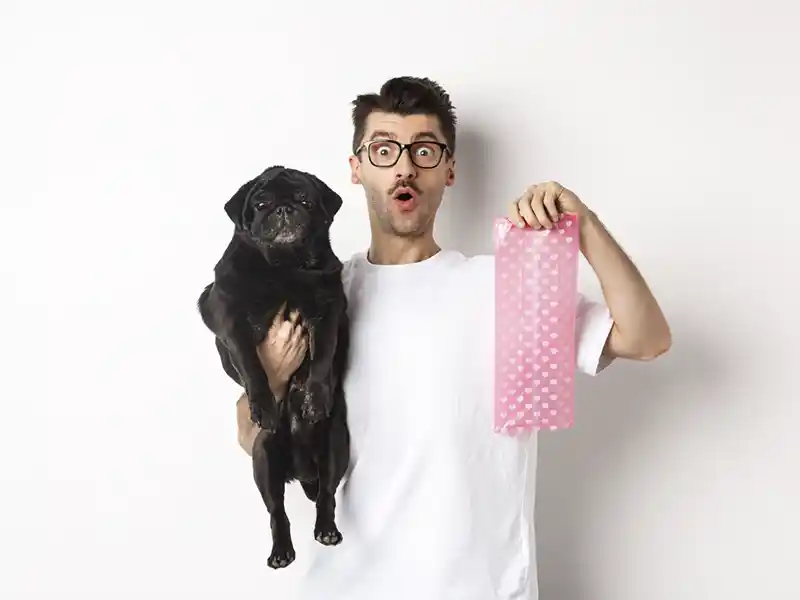The Maine Coon Cat Breed
Maine Coons are often called “gentle giants” for good reason. These cats are not only larger than most other breeds, but they also possess an endearing temperament that makes them wonderful companions. Imagine a feline with the size of a small dog, the loyalty to follow you around, and the intelligence to learn commands and tricks—this is the Maine Coon. With their luxurious fur, tufted ears, and bushy tails, Maine Coons are truly one of nature’s most impressive and captivating cats.
But it’s not just their striking appearance that draws people to this breed. Maine Coons are known for being playful, social, and affectionate, making them perfect for families, singles, or households with other pets. They’re often described as “dog-like” because they love to fetch, enjoy being involved in family activities, and are highly trainable. If you’re looking for a friendly, loyal, and engaging feline companion, a Maine Coon may be the perfect choice.
Quick Facts: Meet the Maine Coon Cat
Here’s a quick overview of the key characteristics of Maine Coon cats, so you can get to know them even better.
| Characteristic | Description | Rating |
|---|---|---|
| Size | Males: 13-18 lbs, Females: 8-12 lbs | ⭐⭐⭐ |
| Average Lifespan | 12–15 years | ⭐⭐⭐⭐ |
| Intelligence Ranking | Top 5 smartest | ⭐⭐⭐⭐⭐ |
| Exercise Requirements | High | ⭐⭐⭐⭐⭐ |
| Grooming Needs | Weekly brushing | ⭐⭐⭐ |
| Training Adaptability | Highly trainable | ⭐⭐⭐⭐⭐ |
| Compatibility with Children | Excellent | ⭐⭐⭐⭐ |
| Energy Level | Very high | ⭐⭐⭐⭐⭐ |
| Shedding Level | Moderate | ⭐⭐⭐ |
| Apartment Living | Suitable | ⭐⭐⭐⭐ |
| Health Issues | Breed-specific (e.g., HCM, hip dysplasia) | ⭐⭐⭐ |
| Cost of Ownership | High initial cost | ⭐⭐⭐⭐ |
| Vocal Tendency | Moderately vocal | ⭐⭐⭐ |
| Social Needs | High | ⭐⭐⭐⭐⭐ |
- • Versatile breed adaptable to various living environments
- • Known for their gentle temperament and affectionate nature
- • Perfect for first-time cat owners and families
- • Exceptionally loyal companions that bond deeply with family
Key Traits of Maine Coon Cats
- Gentle and Friendly: Known for their calm and affectionate personalities, Maine Coons are perfect companions for families and individuals alike.
- Sociable and Loyal: These cats form strong bonds with their owners and enjoy being part of daily activities, often following their humans around the home.
- Intelligent and Playful: With a curious nature and quick learning ability, Maine Coons love interactive play and can even learn tricks like fetching.
- Adaptable: Whether in a spacious house or a cozy apartment, Maine Coons adjust well to different living environments with proper enrichment.
- Distinctive Appearance: Their tufted ears, bushy tails, and luxurious semi-long coats make them stand out as one of the most visually striking cat breeds.
- Moderate Grooming Needs: Regular brushing keeps their water-resistant coats tangle-free and healthy.
If you’re considering adding a Maine Coon to your home, make sure you’re prepared. Check out our Complete Guide to Cat Proofing Your Home for essential tips on how to make your living space safe for your new feline friend.
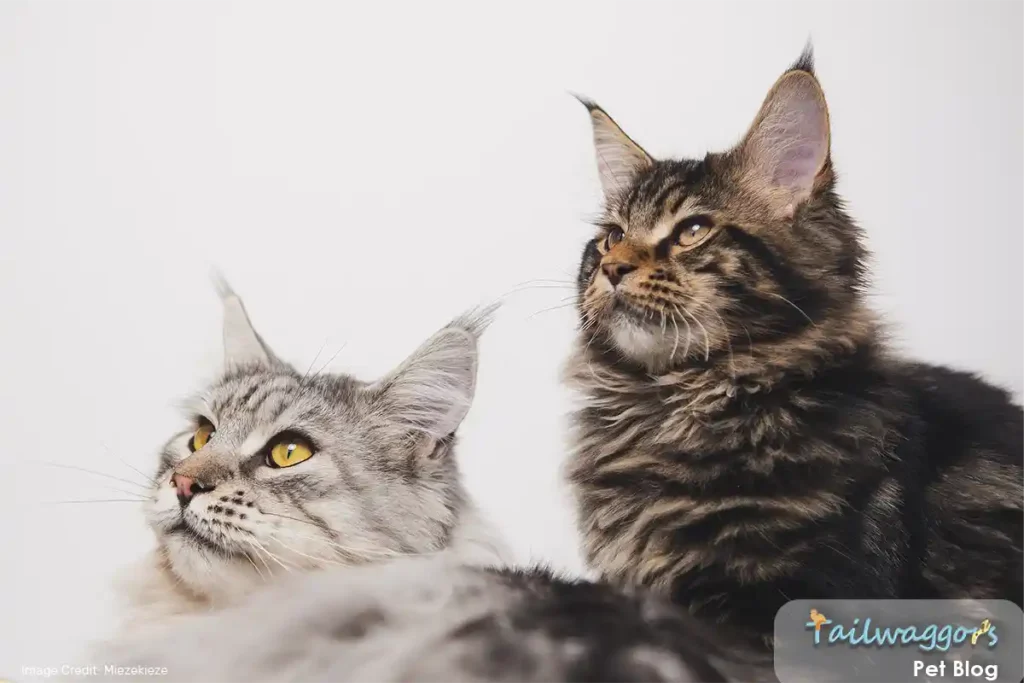
History and Origins of the Maine Coon
Quick Facts About Maine Coon Origins
| Aspect | Detail |
|---|---|
| Genetic Heritage | Likely from Turkish Angora or Norwegian Forest Cats |
| Size Profile | Males: 13–18 lbs, Females: 8–12 lbs |
| First Documentation | 1860s, New England |
| Geographic Connection | Linked to cold climates and coastal regions |
Understanding the history of Maine Coon cats is fascinating. If you’re interested in exploring more about the diverse cat breeds and their origins, our Complete Guide to Choosing the Perfect Cat Breed might provide additional insights.
The Fascinating Origins of the Maine Coon
The Maine Coon is one of the oldest domestic cat breeds in North America, and its history is steeped in both mystery and legend. While we may never know exactly where the breed came from, there are several theories surrounding its origins—each as fascinating as the breed itself.
The Mythical Origins: Legends and Lore
Marie Antoinette’s Cats: One of the most popular myths about the Maine Coon’s origins involves Marie Antoinette, the Queen of France. According to the story, when the French Revolution began, the queen sent her prized Turkish Angora cats ahead of her to America. These cats, so the myth goes, mated with the local wildcats, resulting in the birth of the Maine Coon breed. While this story adds a romantic flair to the breed’s history, there is no historical evidence to support this claim.
Viking Cats: Another widely circulated legend suggests that Maine Coons descended from cats brought over by Viking explorers centuries ago. The idea is that the Vikings brought their long-haired cats with them to the shores of North America, where they mated with local wildcats, creating the Maine Coon. While it’s an interesting theory, there is no solid proof that Vikings ever traveled to the northeastern U.S. or that their cats were the direct ancestors of the Maine Coon.
The Raccoon Hybrid Theory: The most humorous and far-fetched myth is that the Maine Coon is the result of mating between domestic cats and raccoons. While the Maine Coon’s long, bushy tail and tufted ears may look raccoon-like, this is biologically impossible, as cats and raccoons cannot mate. Nevertheless, this myth has endured due to the Maine Coon’s striking physical resemblance to the raccoon.
The Real Origins: From Farm Cats to Show Cats
New England Farm Cats: The most likely origin of the Maine Coon breed lies in the New England farming communities of the 19th century. Maine Coons were working cats, highly valued for their ability to control pests, such as mice and rats, on farms. Their robust size, water-resistant coats, and sharp hunting skills made them ideal for the harsh New England winters.
These farm cats were used to keep barns and homes free of rodents, and over time, they became highly regarded for their size, strength, and affectionate nature. Early Maine Coons likely evolved naturally in these conditions, adapting to the cold climate and becoming a distinct breed. Their thick, long fur and tufted ears are thought to be adaptations for surviving harsh winters, while their large size made them effective hunters.
Breed Recognition and the Road to Fame
While Maine Coons were well-known and beloved by local farmers, it wasn’t until the late 19th century that they began to gain recognition as a formal breed. In 1861, a Maine Coon named Captain Jenks of the Horse Marines gained fame for his impressive size and charming personality. By the early 20th century, Maine Coons began appearing at cat shows, and their unique characteristics began to attract attention.
In 1895, a Maine Coon named Cosey won Best in Show at the first major cat show in the United States, cementing the breed’s place in the cat fancy community. However, by the early 1900s, the breed’s popularity began to wane as other breeds gained prominence, particularly the Persian and Siamese cats.
Modern-Day Maine Coons: A Resurgence
Despite facing a period of decline, the Maine Coon breed saw a resurgence in the 1970s. This was largely due to the efforts of breeders dedicated to preserving the breed’s unique traits. In 1976, the Cat Fanciers’ Association (CFA) officially recognized the Maine Coon as a breed, marking the beginning of its return to popularity.
Today, the Maine Coon is one of the most beloved and recognized breeds in the world, known for its gentle personality, large size, and luxurious coat. They are often featured in cat shows and have gained a devoted following of fans who appreciate their unique combination of size, intelligence, and social nature.
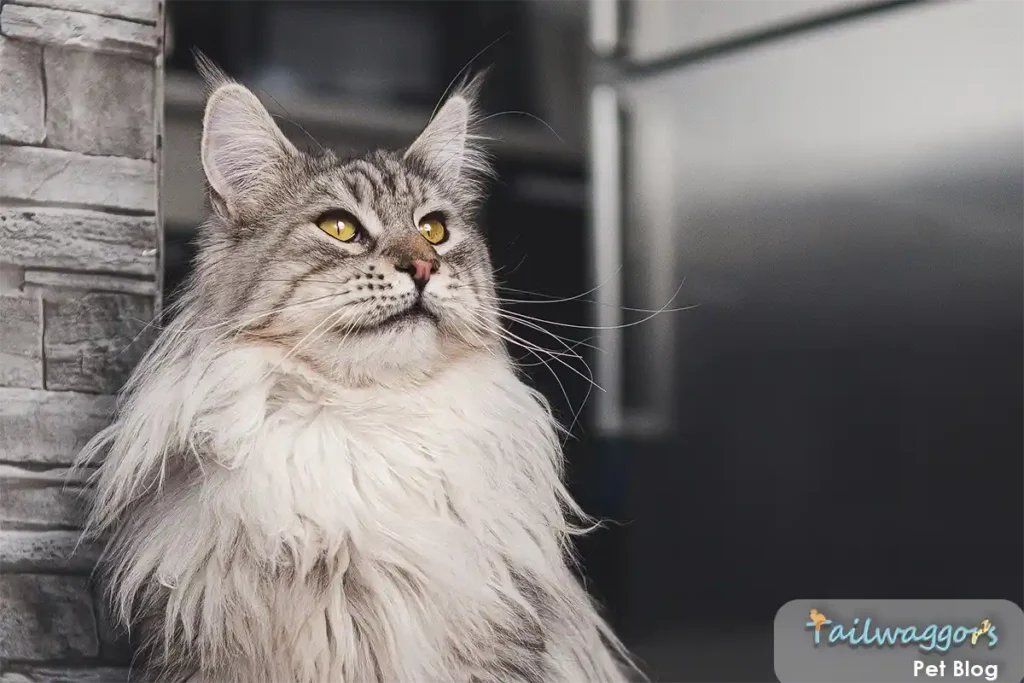
Personality Traits of the Maine Coon
Maine Coons are often described as the gentle giants of the feline world, and their personalities truly reflect this nickname. While their large size may seem intimidating, Maine Coons are known for being affectionate, playful, and social. Let’s dive into the key traits that make the Maine Coon such a beloved breed and explore how these characteristics shape their behavior and interactions with their families.
Table: Temperament & Behavior Profile
| Behavioral Trait | Characteristic | Training Need | Adaptability Rating |
|---|---|---|---|
| Social Interaction | Highly social | Moderate | ⭐⭐⭐⭐⭐ |
| Activity Level | Very high | High | ⭐⭐⭐⭐⭐ |
| Problem Solving | Excellent | Moderate | ⭐⭐⭐⭐⭐ |
| Attention Seeking | Moderate | Low | ⭐⭐⭐⭐ |
| Independence | Balanced | Low | ⭐⭐⭐⭐ |
Affectionate and Loyal Companions
Maine Coons form deep bonds with their human families. Unlike many other cat breeds, they enjoy spending time with their owners and often follow them around the house, like a dog. They are known for being extremely loyal, often greeting their owners at the door and following them from room to room.
- Real-Life Example: Many Maine Coon owners report that their cats will sleep beside them at night, curl up on the couch, or sit on their laps while reading or watching TV. They seek out human companionship and thrive on physical interaction like petting and scratching.
While they are affectionate, Maine Coons are also independent, and they enjoy some alone time. They’re not overly clingy, which makes them a great option for people who want a friendly cat without the constant need for attention.
Highly Intelligent and Trainable
Maine Coons are extremely intelligent and learn quickly. This is one of the reasons they’re so often compared to dogs. Their problem-solving abilities are impressive, and they can be taught simple tricks, fetch, and even to walk on a leash.
- 🐱 Training Tip: Maine Coons respond well to positive reinforcement. Training with treats or toys works best, and it’s essential to keep sessions short and enjoyable. They can also be taught commands like “sit,” “stay,” and “high-five.”
They are also known for their ability to open doors or solve puzzles, so cat owners often need to take extra precautions to cat-proof their homes to keep them from getting into mischief.
Playful and Active
Despite their large size, Maine Coons retain a kitten-like playfulness throughout their lives. They enjoy interactive toys such as feather wands, laser pointers, and puzzle feeders, which help keep their sharp minds engaged. Maine Coons are also known for their love of water, which is another reason they are sometimes compared to dogs.
- Real-Life Example: It’s not uncommon to see a Maine Coon batting at a water faucet or playing in a sink or bathtub. Some owners have even reported their Maine Coons enjoying swimming in small amounts of water, an unusual trait in cats.
Their playfulness is accompanied by a high energy level, which means they need plenty of physical exercise to stay happy. A Maine Coon left without sufficient stimulation might become bored and engage in destructive behaviors, so providing a variety of toys and play opportunities is essential.
Social and Gentle with Other Pets
One of the standout features of the Maine Coon is their sociable nature. They tend to get along well with other animals, including other cats and dogs. While they can be territorial initially, they are typically very adaptable and willing to share their space once they’ve settled in.
- Real-Life Example: Maine Coons are often seen playing with dogs in their homes, and many owners describe them as getting along wonderfully with their canine companions. Their calm demeanor allows them to coexist peacefully in multi-pet households.
This breed is especially good with children, due to their patient and gentle nature. Maine Coons typically tolerate rough handling and enjoy being around energetic kids. They are more tolerant than many other breeds and tend to remain calm in most situations, making them a great choice for families with children.
Low to Moderate Vocalization
Unlike some cat breeds, Maine Coons are generally moderately vocal. They don’t typically meow loudly like Siamese cats, but they communicate in other ways. Their chirps and trills are distinctive, often heard when they greet their owners or express excitement.
- 🐱 Fun Fact: Some Maine Coons even “talk” back to their owners, chirping when spoken to or responding to certain noises, a trait that many owners find endearing.
Their moderate vocalization makes them easy to live with in quieter homes, as they aren’t likely to disturb the peace with constant meowing or yowling.
Understanding Maine Coon Personalities
Maine Coon cats are celebrated for their unique blend of size, intelligence, and gentle nature, making them truly stand out among cat breeds. Known as the “gentle giants” of the feline world, they possess a playful, affectionate personality that perfectly balances their independent streak.
As Dr. Esther Knoetze, BSc, BVSc, notes:
“Maine Coons thrive in environments where they can engage with their families while also enjoying opportunities for exploration and play.”
Whether you’re looking for a loyal, social companion to join a lively household or a curious, low-maintenance pet for your quieter home, the Maine Coon’s loving temperament and adaptability make them a perfect match. Their majestic presence and warm personality will undoubtedly enrich your life with joy and companionship.
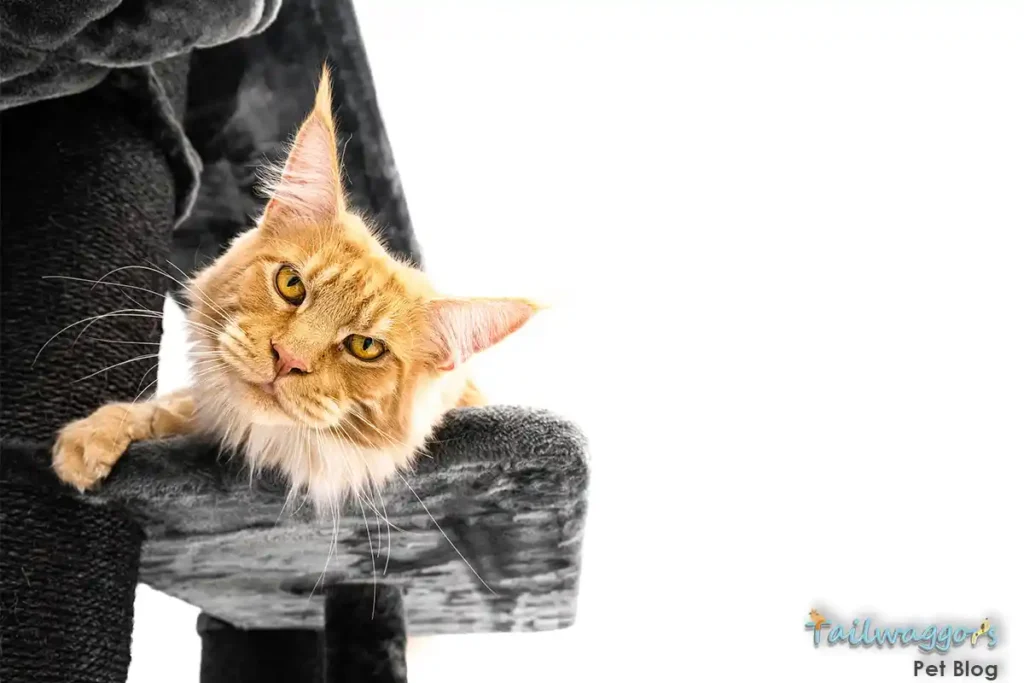
Physical Characteristics of the Maine Coon
Size and Build
- The Maine Coon is one of the largest domesticated cat breeds, renowned for its sturdy, muscular frame and commanding presence. Known as “gentle giants,” they are beloved for their affectionate and sociable nature.
- Average Size:
- Males: 13–25 pounds (5.9–11.3 kg)
- Females: 10–20 pounds (4.5–9.1 kg)
- Notable Features:
- Long, bushy tails that help with balance and warmth.
- Large, tufted paws ideal for traversing snowy terrain.
- High cheekbones and a square muzzle that add to their regal appearance.
- 🐱 Fun Fact: The Maine Coon is the official state cat of Maine, USA, where they are cherished for their hunting skills and amiable demeanor.
Coat and Colors
Maine Coons boast a luxurious, weather-resistant coat that sets them apart as hardy outdoor cats while also making them perfect for snuggles indoors.
- Coat Texture:
- Shaggy yet soft, with a water-repellent outer layer and a silky undercoat.
- Color Varieties:
- Tabby Patterns: Classic, mackerel, and spotted.
- Solid Colors: Black, white, blue, red, and cream.
- Bi-color: Popular combinations like black and white or blue and cream.
- Tortie (Tortoiseshell): A mix of black, orange, and cream shades.
- Shaded/Silver: Featuring silver-tipped fur or smoky hues.
- Rare Colors: Shaded gold and solid chocolate.
- Care Needs Based on Coat:
- Lighter Colors: Prone to staining around the eyes and mouth; regular cleaning is advised.
- Tabbies and Shaded Coats: Frequent brushing reduces tangles and matting.
- Dense Coats: Additional grooming during seasonal shedding to prevent hairballs.
🐱 Grooming Tip: A metal comb is the most effective tool for keeping their long, thick coat healthy and free of knots. Using a detangling spray can also reduce pulling on tangles.
Facial Features
The Maine Coon’s expressive face and distinctive ear tufts make them one of the most recognizable cat breeds.
- Eyes: Large, almond-shaped, and slightly oblique. Colors range from gold to green, with blue and odd eyes seen in some white cats.
- Ears: Large, pointed, with lynx-like tufts and feathering.
- Nose: Straight and slightly concave, harmonizing with their balanced head shape.
🐱 Fun Fact: Maine Coons are known for their chirping trills, a charming way they communicate with their human companions.
Why Understanding These Characteristics Matters
The Maine Coon’s impressive physical traits, coupled with their friendly disposition, make them an ideal companion for families and individuals alike. Their adaptable, loving nature and low-maintenance grooming needs ensure they thrive in a variety of households.
With proper care tailored to their dense coat and unique needs, Maine Coons are more than just majestic—they are affectionate, intelligent, and unforgettable pets. Whether it’s their striking appearance or their sweet “personalities in fur,” they’re sure to win your heart.
Want to learn more about caring for your Maine Coon? Explore our detailed Maine Coon Grooming Guide and uncover tips to keep your gentle giant happy and healthy year-round!
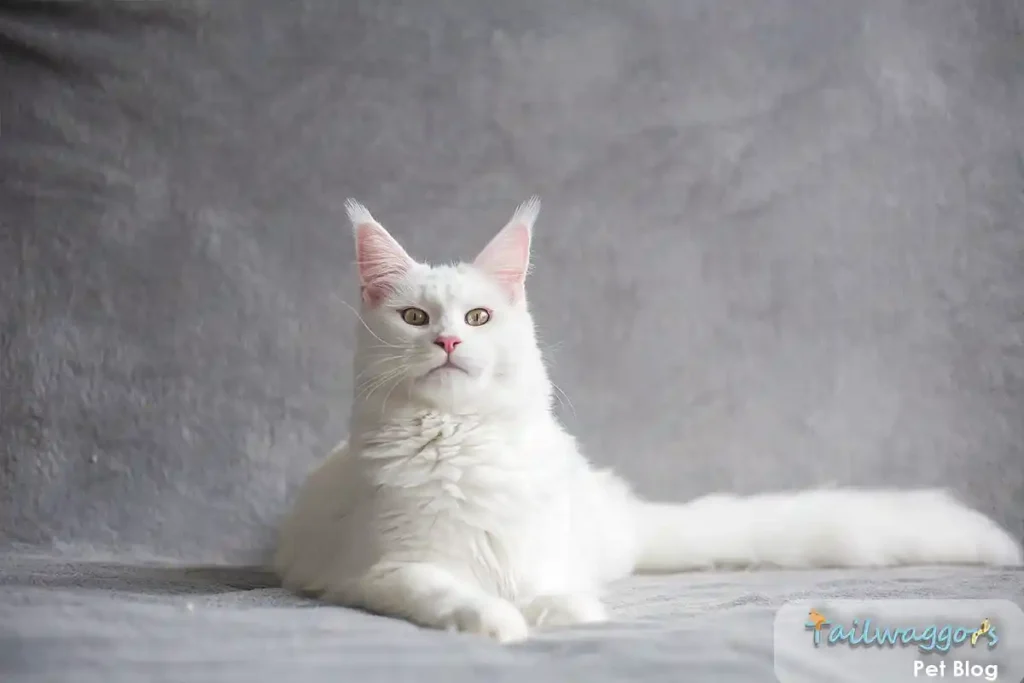
Health and Lifespan of the Maine Coon
Maine Coons are generally known for their robust health and long lifespan, but like any breed, they are predisposed to certain health conditions. Understanding these potential issues and knowing how to manage them is crucial to ensuring your Maine Coon leads a happy and healthy life.
Average Lifespan of Maine Coons
Maine Coons are among the longer-living cat breeds, with an average lifespan of 12 to 15 years, although some can live into their late teens or even early twenties with the proper care. Their lifespan can be significantly influenced by genetics, diet, regular veterinary checkups, and overall care.
- Real-Life Example: Some Maine Coon owners have shared stories of their cats living well into their late teens, staying healthy with regular vet visits, proper nutrition, and plenty of exercise. In fact, maintaining a healthy weight is one of the biggest factors in ensuring a long life for this breed, as obesity can lead to a variety of health issues, including joint problems and diabetes.
Common Health Issues in Maine Coons
Table: Health & Genetic Considerations
| Health Aspect | Risk Level | Prevention Options | Management Rating |
|---|---|---|---|
| Hypertrophic Cardiomyopathy | Moderate | Genetic testing, regular screenings | ⭐⭐⭐⭐ |
| Hip Dysplasia | Moderate | Maintain healthy weight, regular checkups | ⭐⭐⭐ |
| Spinal Muscular Atrophy | Low | Genetic testing, early diagnosis | ⭐⭐⭐⭐ |
| Polycystic Kidney Disease | Moderate | Regular kidney function checks, genetic testing | ⭐⭐⭐⭐ |
| Dental Disease | Moderate | Regular brushing, dental treats | ⭐⭐⭐⭐ |
Despite their generally strong health, Maine Coons are prone to a few breed-specific health conditions. Regular screenings and maintaining a healthy lifestyle can help prevent or manage these conditions.
1. Hypertrophic Cardiomyopathy (HCM)
- What is it? HCM is a genetic condition that causes the thickening of the heart muscles, impairing the heart’s ability to pump blood efficiently. This condition is one of the most common heart diseases found in Maine Coons.
- Symptoms: Early symptoms may include lethargy, difficulty breathing, and fainting. In severe cases, it can lead to heart failure.
- Prevention and Management: Genetic testing for HCM can help identify cats that carry the gene for the condition. Regular heart screenings (ultrasound or ECG) starting at age 2 can help catch the disease early. Managing stress and maintaining a healthy weight can also reduce the risk of HCM.
2. Hip Dysplasia
- What is it? Maine Coons are a large breed, and like many large-breed dogs, they are susceptible to hip dysplasia, a condition where the hip joint does not develop properly, leading to pain and mobility issues.
- Symptoms: Limping, reluctance to jump or run, and difficulty climbing stairs.
- Prevention and Management: Keeping your Maine Coon at a healthy weight and providing joint supplements can help. If hip dysplasia is detected early, physical therapy, pain management, and surgical options can improve the quality of life for affected cats.
3. Spinal Muscular Atrophy (SMA)
- What is it? SMA is a genetic disorder that affects the spinal cord’s motor neurons, leading to muscle wasting and weakness. It typically affects kittens and can cause them to have difficulty moving their hind limbs.
- Symptoms: Loss of coordination and muscle weakness, usually appearing in kittens as young as 4 to 6 months.
- Prevention and Management: SMA cannot be cured, but genetic testing can identify carriers. It’s important to only breed cats that are clear of the SMA gene to reduce the risk of passing it on.
4. Polycystic Kidney Disease (PKD)
- What is it? PKD is a genetic condition in which cysts form in the kidneys, eventually impairing their function.
- Symptoms: The disease progresses slowly, and symptoms may not appear until the cat is older. Signs include increased thirst, frequent urination, and weight loss.
- Prevention and Management: Regular veterinary checkups, monitoring kidney function, and maintaining a kidney-friendly diet can help manage PKD. Genetic testing is available to determine if your Maine Coon is at risk.
Proactive Care Checklist for Maine Coon Cats
Table: Health Checklist for Maine Coon Cats
| Health Aspect | Recommended Action | Frequency |
|---|---|---|
| Heart Health (HCM) | Annual cardiac screenings (ultrasound/ECG). | Annually (from age 2) |
| Weight Monitoring | Check body condition score and adjust portion sizes to maintain healthy weight. | Monthly |
| Dental Care | Brush teeth and offer dental treats; consider professional cleaning. | Weekly brushing; annual cleaning |
| Vaccinations | Ensure all core vaccines (e.g., feline distemper, rabies) are up to date. | As per vet’s schedule |
| Flea and Tick Prevention | Apply topical or oral flea/tick preventatives. | Monthly |
| Joint Health (Hip Dysplasia) | Monitor for signs of mobility issues and provide joint support (glucosamine). | Regular check-ups, as needed |
| Kidney Health (PKD) | Regular kidney function checks and genetic testing for Polycystic Kidney Disease (PKD). | Annually or as recommended by vet |
| Spinal Muscular Atrophy (SMA) | Genetic testing and early diagnosis; monitor muscle strength. | As recommended (early testing) |
| Ear Health | Regular ear cleaning to prevent wax buildup. | Bi-weekly cleaning |
| Parasite Control | Routine treatments for worms, fleas, and ticks. | Monthly |
Regular vet visits are essential to keeping your Maine Coon in good health. In addition to monitoring for breed-specific conditions, annual checkups ensure that your cat is up-to-date on vaccinations, flea and tick prevention, and dental care.
- Dental Care: Dental disease is common in cats, and it’s no different for Maine Coons. Regular brushing and providing dental treats can help prevent gingivitis and periodontal disease.
- Parasite Control: Routine treatments for fleas, ticks, and worms are necessary to prevent health issues caused by these parasites.
Maintaining a nutritious diet and providing regular exercise is essential to the long-term health of your Maine Coon. Ensuring they don’t become overweight is especially important for preventing joint issues and heart problems.
This health checklist focuses on the specific health concerns that Maine Coon cats may face, such as heart health (HCM), hip dysplasia, and kidney health (PKD). Regular monitoring and preventive care are essential for maintaining the well-being of this majestic breed.
Signs of Illness to Watch For in Maine Coon Cats
Early detection is key to managing health issues. Contact your veterinarian if you notice:
- Persistent coughing or labored breathing (could be a sign of Hypertrophic Cardiomyopathy (HCM), a common heart condition in Maine Coons).
- Increased thirst or urination (may indicate Polycystic Kidney Disease (PKD) or diabetes).
- Red or swollen gums, bad breath (often a sign of dental disease, which is common in Maine Coons).
- Unexplained weight gain or loss (could signal metabolic issues like hyperthyroidism or obesity).
- Limping or reluctance to jump (indicates potential hip dysplasia or arthritis, both of which can affect large breeds like the Maine Coon).
Maine Coons, like all cats, require regular health checkups. If you’re concerned about health risks for your cat, be sure to explore our Complete Cat Emergency Plan Guide for tips on how to handle emergencies.”
Real-Life Success Story
A Maine Coon owner in the US noticed their cat showing signs of labored breathing and coughing. After a routine heart screening, the cat was diagnosed with HCM. With early detection and medication, the cat lived comfortably for several years. The owner also adjusted the cat’s diet and provided interactive toys to maintain its weight and activity levels. By focusing on mental stimulation and weight management, the Maine Coon remained playful and active well into its senior years.
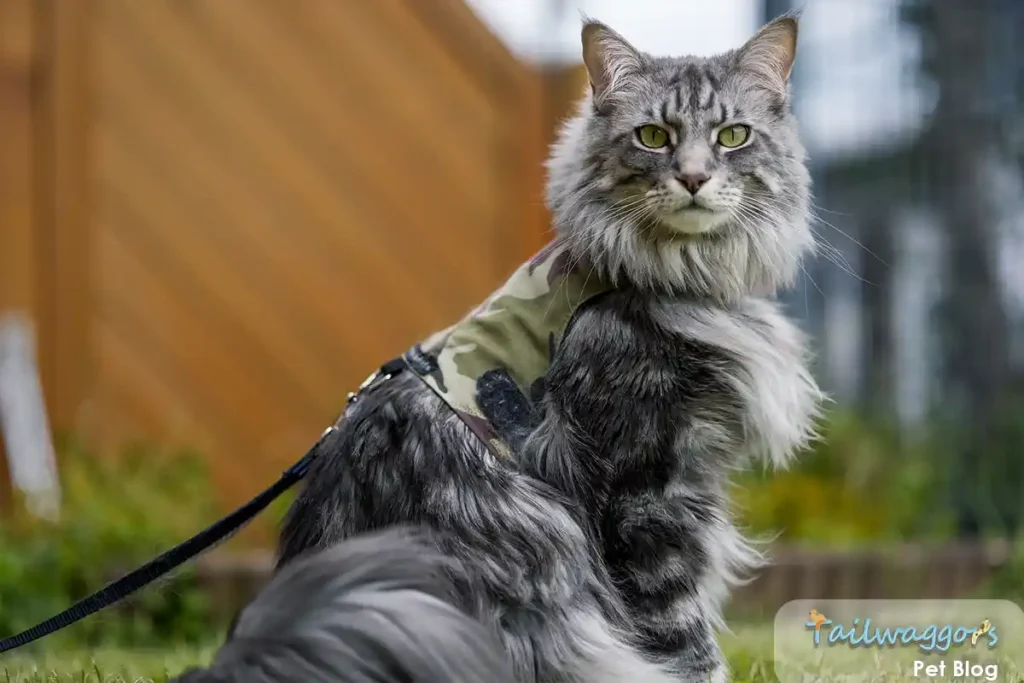
Caring for a Maine Coon: Grooming, Diet, and Maintenance Guide
Maine Coons are known for their luxurious fur, large size, and active nature, which means they require regular care and attention to stay healthy and happy. In this section, we’ll cover the essential aspects of grooming, nutrition, exercise, and mental stimulation needed to keep your Maine Coon thriving.
Table: Care Requirements
| Care Aspect | Requirement Level | Frequency | Detail | Importance Rating |
|---|---|---|---|---|
| Grooming | Moderate | 2-3 times per week | Brushing, nail trimming, ear cleaning | ⭐⭐⭐⭐ |
| Feeding | High | Daily | High-protein diet, portion control | ⭐⭐⭐⭐⭐ |
| Exercise | Very high | Daily | Play, climbing, interactive toys | ⭐⭐⭐⭐⭐ |
| Health Monitoring | High | Annual | Regular checkups, vaccinations, parasite control | ⭐⭐⭐⭐⭐ |
Grooming: Keeping Their Luxurious Coat in Top Condition
Maine Coons have a long, dense coat that helps them survive in cold climates, but this beautiful fur requires regular grooming to prevent mats, tangles, and hairballs. Grooming is an essential part of Maine Coon care, especially during shedding seasons (spring and fall), when they tend to lose more fur.
Grooming Routine
- Brushing: Maine Coons should be brushed 2–3 times a week to keep their fur tangle-free and healthy. Use a wide-toothed comb to gently detangle their fur and a slicker brush to remove loose hair.
- Ear Cleaning: Maine Coons are prone to earwax buildup due to their large ears, so check and clean their ears regularly. Use a gentle ear cleaner to wipe the inner ear, avoiding deep insertion to prevent injury.
- Bathing: Maine Coons don’t need frequent baths, but a bath once every few months may help with shedding and keeping their coat shiny. Use a cat-friendly shampoo to avoid irritating their skin.
Real-Life Example:
One Maine Coon owner shared that their cat enjoyed being brushed, especially when it was combined with some treats. Creating a positive grooming experience can make this routine enjoyable for both you and your cat.
To maintain a healthy coat and skin, grooming your Maine Coon is essential. If you’re looking for the right tools and supplies to make grooming easier, check out our Vet-Approved New Cat Supply Checklist.
Nutrition: Feeding Your Maine Coon for Health and Longevity
Maine Coons are large cats, and they require a high-protein diet to maintain their muscle mass and support their energetic lifestyle. Providing them with the right balance of nutrients is essential for their overall health, especially as they grow.
Feeding Tips
- Protein-Rich Diet: Look for high-quality cat food with real meat as the first ingredient. Avoid foods with a lot of fillers like corn or soy, which provide little nutritional value.
- Feeding Schedule: Maine Coons typically thrive on 2–3 meals a day. Their large size means they require larger portions, but it’s important to follow the manufacturer’s feeding guidelines to avoid overfeeding.
- Water: Maine Coons are prone to kidney disease, so make sure they always have access to fresh water. Consider providing a cat water fountain, as some Maine Coons prefer drinking from moving water.
Special Dietary Considerations:
- Joint Health: As Maine Coons are prone to hip dysplasia, you may want to look for food that includes joint support ingredients like glucosamine and chondroitin.
- Weight Management: If your Maine Coon is prone to obesity, consider feeding them smaller, more frequent meals and monitor their weight regularly.
To learn more about keeping your Main Coon cat safe from potential dietary hazards, check out our Complete Guide to Prevent Cat Poison This guide provides essential tips on identifying dangerous substances and creating a toxin-free environment for your feline friend.
Exercise: Keeping Your Maine Coon Active and Stimulated
Despite their large size, Maine Coons are highly energetic cats that require regular exercise to stay fit and healthy. Providing them with a variety of toys, interactive playtime, and climbing opportunities is essential for their physical and mental well-being.
Exercise Needs
- Interactive Play: Maine Coons love to play, and interactive toys like feather wands, laser pointers, and cat tunnels are great ways to keep them engaged. Aim for at least 20 minutes of active play each day.
- Climbing and Exploration: These cats are excellent climbers and enjoy exploring vertical spaces. Providing them with cat trees, shelves, and perches will allow them to fulfill their natural instincts to climb and observe their surroundings.
- Mental Stimulation: Maine Coons are highly intelligent, and without enough mental stimulation, they may become bored and engage in undesirable behaviors. Puzzle feeders and training exercises are perfect for keeping their minds sharp.
Real-Life Example:
One Maine Coon owner shared how they created an entire climbing wall for their cat, with multiple shelves and climbing poles that allowed their Maine Coon to exercise while also being mentally stimulated. This kind of environment satisfies their natural curiosity and need for space.
Creating a Comfortable Environment for Maine Coon Cats
Maine Coons are social, affectionate cats that thrive in an environment tailored to their unique needs. Their large size, playful nature, and thick coats require thoughtful accommodations to keep them comfortable and happy.
Cozy Spaces for Relaxation
- Spacious Beds and Blankets: Maine Coons appreciate soft, oversized bedding that supports their large frames. Place their beds in quiet corners of your home where they can relax without interruptions.
- Vertical Climbing Areas: These cats love to climb and observe their surroundings. Invest in sturdy cat trees, wall-mounted shelves, or window perches to satisfy their natural instincts.
- Safe Retreats: Provide cozy, enclosed spaces like cat caves or boxes to give your Maine Coon a sense of security during stressful events, such as loud noises or the arrival of guests.
Temperature Regulation
- Maine Coons’ thick, water-resistant coats make them more tolerant of cold weather, but they can still overheat in warm climates.
- Ensure access to shaded, cool areas during summer and provide warm blankets or heated beds for winter.
🐾 Tailwaggors Tip:
For a comprehensive checklist of bedding, climbing structures, and enrichment tools, check out our Vet-Approved New Cat Supply Checklist.
Why Proper Care Matters
Maine Coons are known for their gentle, playful, and affectionate personalities. By prioritizing their grooming, nutrition, and mental enrichment, you can ensure they remain healthy, happy, and thriving in a loving environment that meets their unique needs.
🐾 Tailwaggors Tip:
Dedicate time each day for bonding with your Maine Coon through interactive play, gentle grooming, or just relaxing together. Your love and care will be rewarded with their loyal companionship and playful charm.
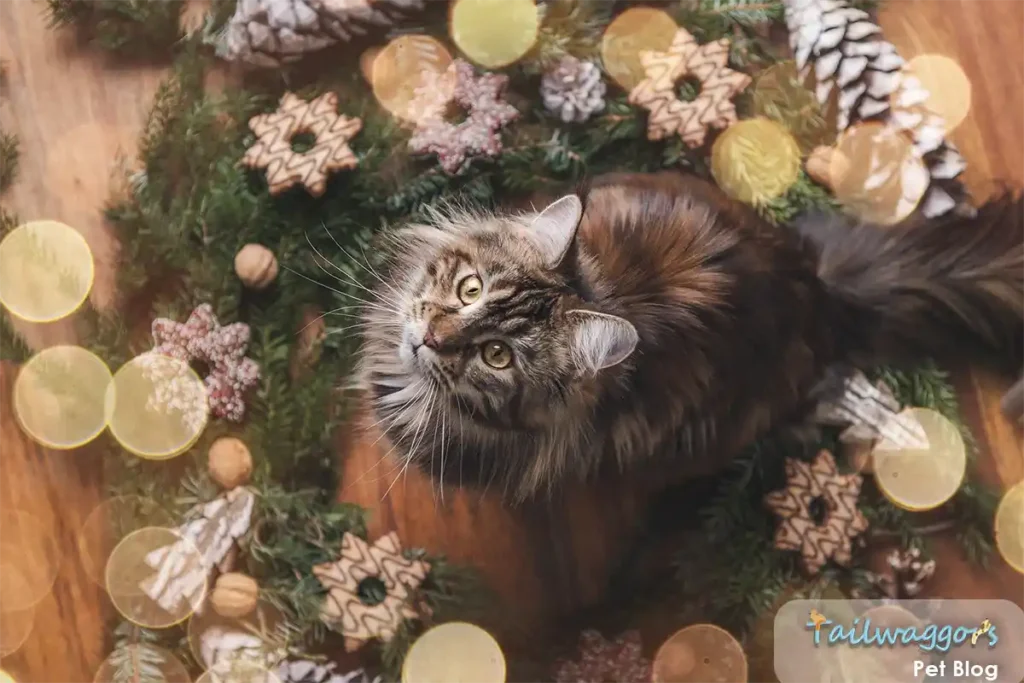
Owning a Maine Coon Cat: Budgeting and Financial Insights
Maine Coons are a majestic and lovable breed, but owning one comes with financial commitments. As a large breed with specific care needs, Maine Coons can be more expensive to care for than smaller cats. In this section, we’ll break down the costs of owning a Maine Coon, including initial expenses, ongoing costs, and hidden costs you may not have considered. We’ll also provide tips on how to manage these costs without compromising the care of your cat.
Table: Cost Breakdown Analysis Estimates
| Expense Category | Initial Cost | Annual Cost | Value Rating |
|---|---|---|---|
| Food | $300–$600 | $500–$800 | ⭐⭐⭐⭐ |
| Veterinary Care | $150–$300 | $200–$400 | ⭐⭐⭐⭐ |
| Grooming Supplies | $50–$100 | $50–$100 | ⭐⭐⭐ |
| Pet Insurance | $0–$60 (monthly) | $240–$720 | ⭐⭐⭐⭐ |
| Emergency Care | $200–$2,000 | $0–$300 | ⭐⭐⭐⭐ |
| Miscellaneous (Toys, Scratching Posts) | $50–$100 | $50–$100 | ⭐⭐⭐ |
Initial Costs: Bringing Your Maine Coon Home
The initial costs of owning a Maine Coon vary depending on whether you choose to adopt or purchase from a breeder. While adopting from a shelter or rescue may be more affordable, purchasing from a breeder ensures a specific pedigree and health testing for genetic conditions.
Adoption vs. Breeding Costs
- Adoption Costs: Adopting a Maine Coon from a shelter or breed-specific rescue typically costs $100–$300. This cost often includes vaccinations, microchipping, and spaying/neutering. While adopting can be more budget-friendly, be prepared for possible initial vet visits to check for any health conditions.
- Breeder Costs: Purchasing a Maine Coon from a breeder can be significantly more expensive, with prices typically ranging from $1,200 to $2,500, depending on the breeder’s reputation, pedigree, and the cat’s lineage. The breeder cost usually includes health guarantees, genetic testing, and sometimes the first set of vaccinations.
Supplies Needed to Care for Your New Cat
When you bring a Maine Coon into your home, you’ll need to invest in several essential supplies:
- Litter box: $30–$100
- Cat bed and blankets: $20–$60
- Food and water bowls: $15–$30
- Scratching posts and climbing trees: $50–$300 (depending on size and quality)
- Toys: $20–$100
- Grooming tools: $20–$40 (slicker brush, nail clippers, combs)
- Microchip registration: $20–$40
Real-Life Example:
One Maine Coon owner shared that when they first adopted their Maine Coon, the initial cost of adopting the cat and setting up their home (including all the necessary supplies) was around $800. This was a one-time expense that covered everything from the adoption fee to the first set of essential cat supplies.
Ongoing Annual Costs
Once you’ve brought your Maine Coon home, there are several ongoing costs that you’ll need to account for. These include food, veterinary care, grooming, and emergency expenses.
Food
Maine Coons are large cats that require a high-protein diet to maintain their muscle mass and energy levels. The cost of feeding your Maine Coon will depend on the type of food you provide.
- Dry Food: $30–$50 per month for a high-quality dry food.
- Wet Food: $50–$80 per month if you choose to feed wet food or a combination of both.
- Specialty Foods (e.g., for joint support, weight management): These can be more expensive, ranging from $60 to $100 per month.
Veterinary Care
Annual veterinary visits are crucial for monitoring your Maine Coon’s health and preventing any breed-specific conditions like HCM or hip dysplasia. Regular checkups include:
- Annual wellness exam: $100–$200
- Vaccinations: $50–$100 annually
- Flea, tick, and parasite prevention: $50–$150 annually
- Dental care: Professional cleanings can range from $200–$400 every year or two.
Grooming
Although Maine Coons have beautiful coats, they require regular grooming to avoid mats and tangles. Grooming costs can vary depending on whether you do it yourself or take your cat to a professional.
- DIY grooming: $20–$50 annually for tools (brushes, clippers).
- Professional grooming: $50–$100 per session, depending on your location and the cat’s grooming needs.
Emergency Veterinary Costs
Unexpected veterinary expenses, such as surgery, diagnostic tests, or emergency care, can be significant. These costs can range from $200 to $5,000 depending on the situation. It’s highly recommended to have pet insurance or create an emergency fund for such unforeseen events.
Hidden Costs: Things You Might Not Expect
There are additional costs that may arise throughout the year, which many cat owners don’t anticipate when first adopting or buying a Maine Coon.
- Pet Insurance: A Maine Coon’s size and susceptibility to certain health conditions (such as HCM) can make pet insurance a good investment. Expect to pay anywhere from $20–$60 per month for coverage.
- Traveling with Your Maine Coon: If you plan on traveling with your cat, you’ll need to consider the cost of pet sitters, boarding fees, or travel-related expenses (e.g., cat carriers, hotel stays that allow pets).
- Extra Scratching Posts: Because Maine Coons are natural climbers and scratchers, you may find yourself needing to buy additional scratching posts, cat trees, and cat furniture to keep your Maine Coon occupied and prevent them from scratching your furniture.
Cost-Saving Strategies for Maine Coon Owners
Maine Coons are gentle giants that require specific care to thrive. By planning ahead and making smart financial choices, you can ensure their well-being without exceeding your budget.
- Buy in Bulk: Maine Coons’ hearty appetites make bulk purchases of premium food and litter a cost-effective option. Look out for sales or subscribe to delivery services to save on recurring costs.
- Preventive Healthcare: Regular veterinary checkups help identify potential issues like hip dysplasia or hypertrophic cardiomyopathy (HCM) early, preventing costly treatments in the future.
- Invest in Durable Supplies: Maine Coons need sturdy cat trees, extra-large beds, and robust scratching posts designed to accommodate their size and energy levels. Investing in high-quality products ensures longevity and reduces replacement costs.
- DIY Grooming: Learn how to brush your Maine Coon’s dense coat and trim their nails at home. This saves on professional grooming fees while strengthening your bond with your cat.
- Budget-Friendly Enrichment: Create engaging toys and climbing spaces using household items, or rotate existing toys to keep them entertained without overspending.
🐾 Tailwaggors Tip:
For a detailed list of cost-effective supplies and essentials, check out our Vet-Approved New Cat Supply Checklist.
Is Owning a Maine Coon Cat Worth the Investment?
Maine Coons’ loving and playful nature makes them one of the most rewarding breeds to own. While they require a financial commitment, their companionship and charm make it worthwhile. By budgeting wisely, investing in preventive care, and planning for routine and unexpected expenses, you can give your Maine Coon a happy, fulfilling life.
Disclaimer:
The cost estimates provided in the “Maine Coon Cat: Budgeting and Financial Insights” section are general approximations based on current market trends and commonly reported expenses in the United States. Actual costs may vary depending on factors such as location, individual pet needs, specific health conditions, and lifestyle choices.
These estimates are intended for informational purposes only and should not replace personal research or consultations with veterinary or pet care professionals. We recommend setting aside additional funds for unexpected expenses, including emergency veterinary care and specialized dietary or training needs, to ensure your Alaskan Malamute receives the best possible care.
Always consult with a veterinarian or trusted breeder for detailed guidance tailored to your specific situation. Tailwaggors is not responsible for discrepancies or unforeseen costs that may arise.
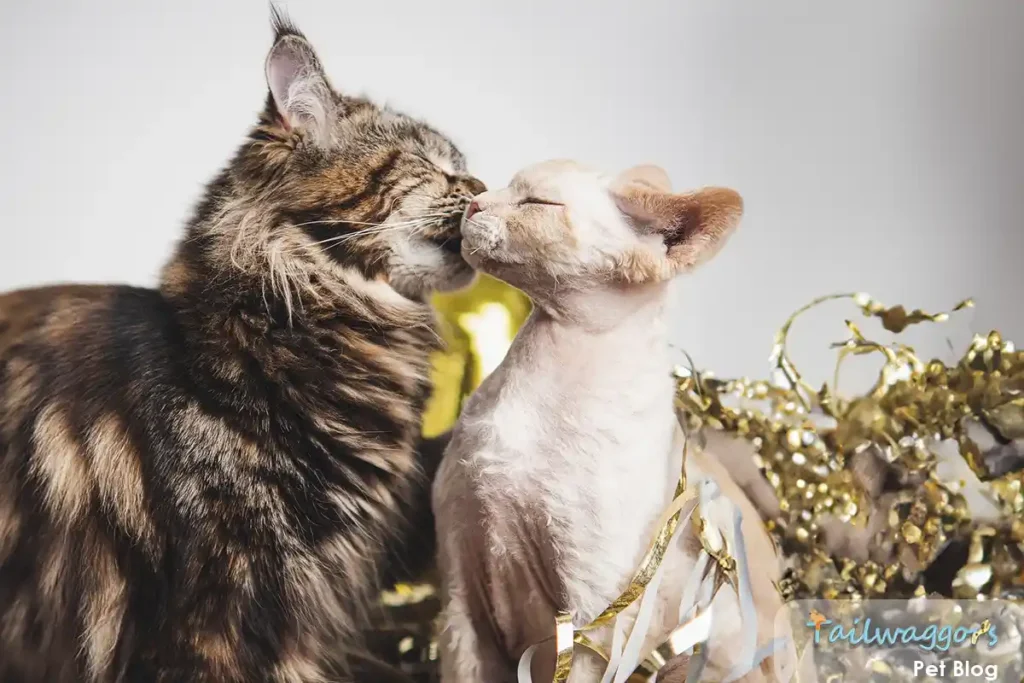
Breed Comparison: Maine Coon vs. Other Popular Breeds
When considering adding a Maine Coon to your family, it’s helpful to compare them with other popular cat breeds, especially other large breeds. The Maine Coon stands out for its size, intelligence, and gentle temperament, but how does it compare to similar breeds like the Norwegian Forest Cat, Ragdoll, and Persian? This section will break down key traits, helping you decide which breed is the best fit for your home and lifestyle.
Table: Breed Comparison
| Aspect | Maine Coon | Ragdoll | Norwegian Forest Cat | Persian | Rating |
|---|---|---|---|---|---|
| Size | Large (13–18 lbs) | Medium (10–20 lbs) | Medium to large (10–16 lbs) | Small to medium (7–12 lbs) | ⭐⭐⭐⭐⭐ |
| Coat | Shaggy, water-resistant | Silky, less maintenance | Thick, dense, double-layer | Dense, short to long | ⭐⭐⭐⭐ |
| Personality | Friendly, playful | Laid-back, affectionate | Independent, reserved | Calm, affectionate | ⭐⭐⭐⭐⭐ |
| Grooming Needs | Moderate to high | Low to moderate | High | Very high | ⭐⭐⭐⭐ |
| Exercise Needs | High | Low to moderate | High | Low | ⭐⭐⭐⭐ |
| Energy Level | Very high | Low | High | Low | ⭐⭐⭐⭐⭐ |
| Affection Level | Very high | Very high | Moderate | Very high | ⭐⭐⭐⭐⭐ |
| Compatibility with Pets | Excellent | Excellent | Good | Good | ⭐⭐⭐⭐⭐ |
Maine Coon vs. Norwegian Forest Cat
The Norwegian Forest Cat (also known as the Wegie) is another large breed with a similar appearance and personality to the Maine Coon. However, the two breeds differ in several aspects, including their origin, grooming needs, and activity levels.
Key Differences:
- Size: Both breeds are large, but Maine Coons are generally heavier and more muscular, with males typically weighing between 13–18 lbs compared to the Norwegian Forest Cat’s average male weight of 10–16 lbs.
- Coat: Both breeds have long, thick coats, but the Maine Coon’s fur is shaggy and soft, while the Norwegian Forest Cat has a waterproof double-layered coat. The Maine Coon requires moderate grooming (2-3 times a week), while the Norwegian Forest Cat’s fur tends to mat less, requiring light grooming.
- Temperament: Both breeds are gentle and social, but the Maine Coon is known for being slightly more affectionate and dog-like, often following owners around. Norwegian Forest Cats tend to be independent but still affectionate, especially when it comes to their owners.
Maine Coon vs. Ragdoll
The Ragdoll is another popular breed that shares many similarities with the Maine Coon but also has notable differences in its temperament and care requirements.
Key Differences:
- Size: Both breeds are large, but Ragdolls tend to be a bit more docile and less muscular than Maine Coons, though they can still reach 20 lbs or more. The Maine Coon is typically more muscular and active.
- Coat: Ragdolls have a silky, semi-long coat that requires light grooming (1-2 times per week). Maine Coons, on the other hand, have a shaggier coat that requires more frequent grooming to prevent mats and tangles.
- Temperament: Ragdolls are extremely affectionate and known for being lap cats. They tend to go limp when picked up, which is where they get their name. Maine Coons, while affectionate, are more independent and energetic, with a strong instinct to explore their environment.
Maine Coon vs. Persian
The Persian is a small-to-medium breed known for its distinctive round face and luxurious, long fur. While Persians are beloved for their calm nature, they differ in many ways from the Maine Coon, especially in terms of grooming and activity level.
Key Differences:
- Size: Maine Coons are significantly larger than Persians. While Persians typically weigh around 7–12 lbs, Maine Coons weigh 13–18 lbs, with some males even reaching 20 lbs.
- Coat: The Persian’s long, thick coat requires daily grooming to avoid mats and tangles, whereas the Maine Coon’s coat, while long, requires moderate grooming (2-3 times per week).
- Temperament: Persians are calm, quiet, and generally low-energy, often preferring to lounge around the house. In contrast, Maine Coons are active and enjoy exploring, playing, and engaging in interactive activities with their owners.
Why Maine Coons Stand Out
Maine Coons are affectionately known as the “gentle giants” of the cat world, revered for their loving personalities, majestic appearance, and adaptable nature. These sociable cats excel in various living environments, whether it’s a spacious house or an apartment outfitted with climbing trees and cozy retreats.
Key Traits That Set Maine Coons Apart:
- Family-Friendly: Maine Coons are wonderful with children and other pets, making them ideal companions for families.
- Intelligent and Loyal: These cats form deep bonds with their families and enjoy interactive play, puzzle toys, and exploring their surroundings.
- Manageable Grooming Needs: Despite their luxurious, water-resistant coats, Maine Coons require regular but straightforward grooming to keep their fur sleek and tangle-free.
Whether you’re searching for a playful and affectionate family pet or a loyal, independent companion, Maine Coons bring a unique blend of warmth, intelligence, and adaptability to any home.
🐾 Tailwaggors Tip:
Maine Coons thrive in environments that cater to their active and curious nature. Incorporate sturdy cat trees, interactive toys, and plenty of affection to keep your gentle giant happy and healthy.
Interested in comparing the Maine Coon with other breeds? Our Guide to Abyssinian Cats offers in-depth insights into this ancient and unique breed.
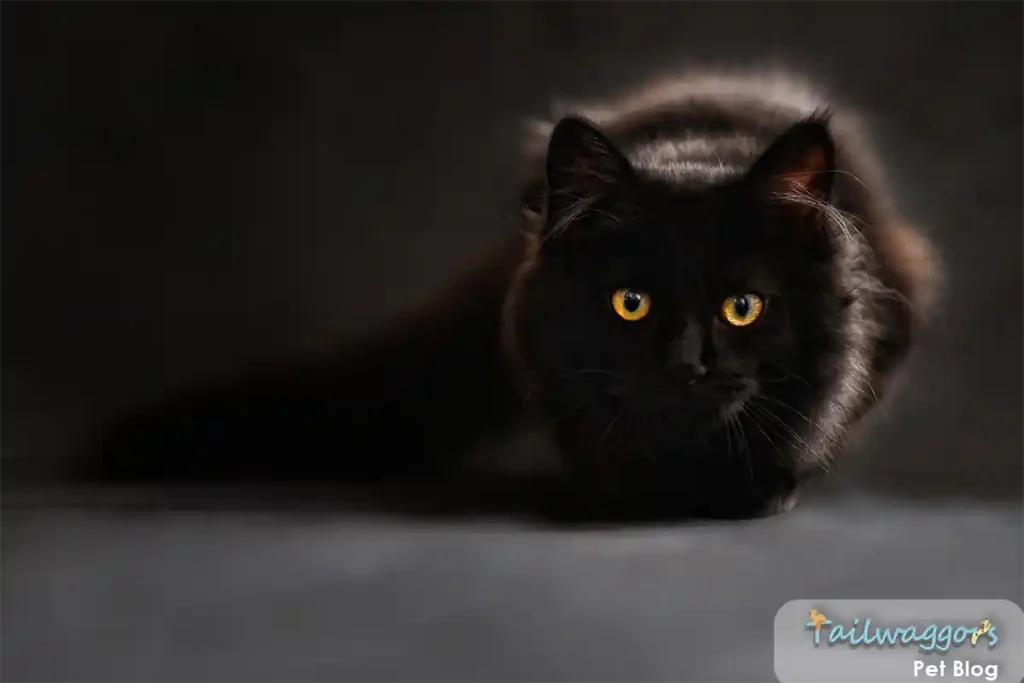
Frequently Asked Questions about the Maine Coon Cat
In this section, we’ll answer some of the most commonly asked questions about Maine Coons, covering everything from their behavioral traits to care needs and health concerns. Whether you’re a first-time cat owner or a seasoned pet parent, these answers will help you better understand this unique and lovable breed.
Are Maine Coons hypoallergenic?
+Maine Coons are not considered hypoallergenic. Like most cats, they produce allergens in their skin and saliva. However, they do tend to shed moderately compared to other long-haired breeds, and their fur is less prone to matting when groomed regularly.
🐾 Pro Tip:
Regular brushing can help reduce the amount of hair and dander in your home, making it easier for allergy sufferers to coexist with their Maine Coon.
How much do Maine Coon cats weigh?
+Maine Coons are one of the largest domestic cat breeds:
- Males: 13-18 pounds (5.9 to 8.2 kg)
- Females: 8-12 pounds (3.6 to 5.4 kg)
Some Maine Coons can exceed 20 pounds (9 kg), especially if they are well-fed and inactive.
💡 Fun Fact:
The heaviest Maine Coon on record weighed 35 pounds (15.8 kg), though this is extreme. Most Maine Coons fall within the average range.
How long do Maine Coon cats live?
+The average lifespan of a Maine Coon is between 12 and 15 years, though some cats have been known to live into their late teens or even early twenties with proper care.
🐾 Pro Tip:
Maintaining a healthy weight and regular check-ups can significantly increase your Maine Coon’s lifespan. Regular screenings for conditions like HCM (Hypertrophic Cardiomyopathy) are essential in ensuring early detection of heart disease.
Are Maine Coons good with children and other pets?
+Yes! Maine Coons are generally excellent with children and other pets. Their gentle, tolerant nature makes them ideal companions for families, even those with younger children. They are sociable and get along well with other cats and dogs, especially if introduced properly.
📝 Real-Life Example:
Many Maine Coons are known for playing fetch with children and forming strong bonds with their canine housemates.
Do Maine Coons like water?
+Yes, Maine Coons are one of the few cat breeds that have a natural affinity for water. They are known to bat at water in sinks, fascinated by faucets, and may even enjoy playing in the bathtub or shallow pools. This trait is believed to have evolved from their history in cold climates.
🐾 Pro Tip:
If your Maine Coon loves water, consider providing a cat water fountain to satisfy their curiosity and keep them hydrated.
How do you train a Maine Coon?
+Maine Coons are highly intelligent and trainable, which is one of the reasons they are often compared to dogs. Training a Maine Coon is relatively easy, especially if you use positive reinforcement techniques, such as treats and praise.
🐾 Pro Tip:
Keep training sessions short and engaging to avoid boredom. Maine Coons respond well to interactive toys and games, which make for great training tools.
What are the grooming needs of a Maine Coon?
+Maine Coons have long, thick fur, which requires regular grooming to prevent mats and tangles. They should be brushed 2–3 times per week, using a wide-tooth comb to detangle their fur and a slicker brush to remove loose hair. During shedding seasons (spring and fall), they may require more frequent grooming.
🐾 Pro Tip:
Start grooming your Maine Coon at an early age to get them accustomed to the process. This will help ensure that grooming remains a positive experience for both of you.
Are Maine Coons prone to any specific health problems?
+Yes, like all breeds, Maine Coons are prone to certain health issues:
- Hypertrophic Cardiomyopathy (HCM): A genetic heart condition that is common in Maine Coons.
- Hip Dysplasia: A joint issue that is more common in larger breeds.
- Spinal Muscular Atrophy (SMA): A genetic disorder affecting muscle control.
- Polycystic Kidney Disease (PKD): A genetic condition in which cysts form in the kidneys.
🐾 Pro Tip:
Regular veterinary visits and genetic testing for certain conditions, especially for breeders, can help detect these issues early.
How much exercise does a Maine Coon need?
+Maine Coons are very active and need daily exercise to stay healthy and prevent boredom. Provide interactive toys, cat trees, and climbing shelves to keep your Maine Coon engaged. Daily play sessions of 15-30 minutes will allow them to burn off energy and satisfy their curiosity.
💡 Fun Fact:
Many Maine Coons love to play fetch and may even bring toys back to you, just like a dog!
Can Maine Coons be kept indoors?
+Yes, Maine Coons can be kept indoors, but they require ample stimulation and space to thrive. If you live in an apartment or a smaller space, it’s essential to provide your Maine Coon with climbing structures, toys, and daily play sessions to keep them mentally and physically stimulated.
🐾 Pro Tip:
Maine Coons enjoy interactive play and mental stimulation just as much as physical exercise, so providing a variety of puzzle feeders and activity centers will ensure they stay happy.
Maine Coons: The Gentle Giant Companion
Maine Coons are a breed that effortlessly combines majestic beauty, intelligence, and a loving disposition. Their sociable and playful nature, along with their adaptability to various living environments, makes them an excellent choice for families, singles, and multi-pet households.
For expert tips on creating the best environment for your Maine Coon or handling emergencies, explore these must-read guides:
🐾 Tailwaggors Tip:
If you’re looking for a friendly and intelligent cat that thrives on interaction and affection, the Maine Coon is an exceptional choice. With proper grooming, enriching playtime, and a loving home, your Maine Coon will reward you with loyalty, companionship, and endless charm.
Maine Coons are fantastic family pets, known for their playful yet gentle nature and social adaptability. To keep them thriving, prioritize regular grooming to maintain their luxurious coats, engage them with interactive toys, and schedule routine veterinary checkups,” advises Dr. Esther Knoetze, BSc, BVSc.
Conclusion: Wrapping Up the Ultimate Guide to the Maine Coon
Maine Coons are a truly unique and captivating breed that offers both beauty and personality in abundance. From their affectionate nature and playful spirit to their impressive size and intelligent minds, these cats have a way of becoming beloved family members. Whether you’re a first-time cat owner or a seasoned pet parent, Maine Coons are sure to steal your heart with their gentle giant charm.
Providing the Best Care for Your Main Coon
As with any breed, understanding their grooming needs, health considerations, and exercise requirements is essential for providing the best possible care. Maine Coons thrive in environments where they are stimulated mentally and physically, and where they receive plenty of love and attention. With regular veterinary care, a nutritious diet, and lots of interaction, your Maine Coon can lead a long, happy, and healthy life.
Thinking About Adopting a Main Coon?
If you’re thinking about adopting a Maine Coon, be sure to consider the financial commitment, as the costs of food, grooming, veterinary care, and emergency expenses can add up over the years. However, the joy and companionship that a Maine Coon brings into your home are priceless.
Want more tips on keeping your cat safe and healthy? Be sure to check out our Complete Guide to Preventing Cat Poisonings for important safety information.
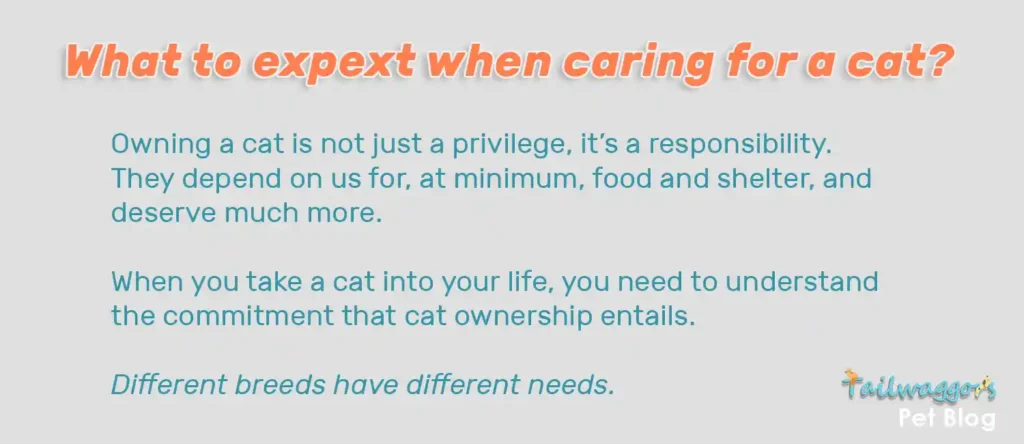
Share Your Maine Coon Story!
We’d love to hear about your Maine Coon! Share your stories, experiences, and any tips you’ve learned about caring for this incredible breed in the comments section below. Don’t forget to follow us on social media for more expert advice, tips, and updates about Maine Coons and other wonderful cat breeds. Contact Tailwaggors.
Meet the Maine Coon—the gentle giant with a heart full of affection! 🐾💫
Explore their unique personality, health tips, grooming needs, costs, and more in this ultimate guide.
Share with fellow cat lovers and let’s talk all about these majestic cats! 🐱❤️


